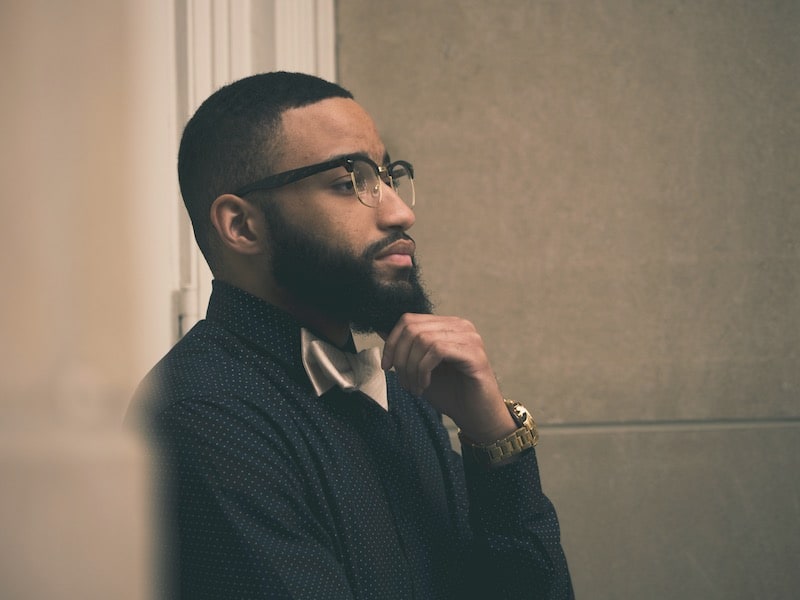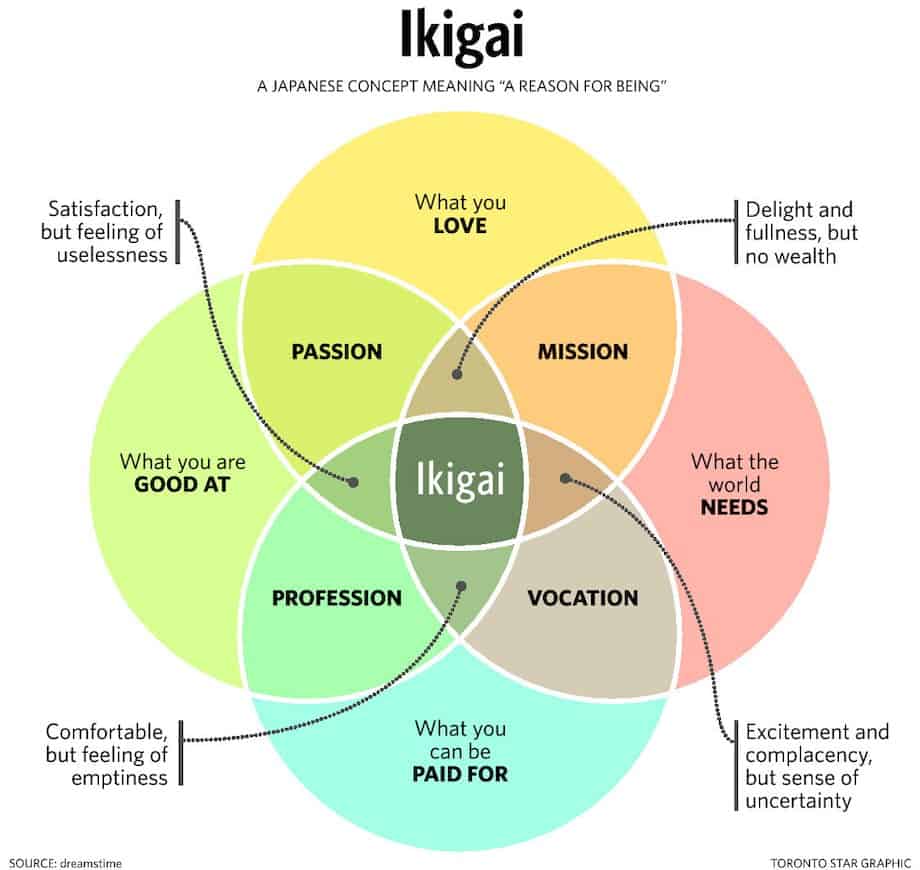
For a long time, I had absolutely no idea what to do with my life, and even to this day, I still have some doubts, but I’ve done a lot of soul searching, and it appears that my purpose is becoming more evident.
The simple answer is that there is no answer; there is no book or website that will tell you what to do with your life. However, if you are willing to try different things and fail along the way, you will get a better sense of what you are good at, what you love, and what the world needs, all of which will help you figure out what to do.
Sometimes we meet people who seem to have everything figured out and know what they want, but that isn’t the case for most people.
If you want to be different, you need to think differently; let’s talk about how you can do that.
Page Contents
What Are We Supposed to Do With Our Lives
It’s funny how we are never taught about anything that matters; we learn how to read, write, and do math. We later learn about our countries, ancient books from the past, and some science experiments. Later we have to pick a major at school and get a job.
The problem with this typical process is we never get taught about what we are supposed to do with our lives. Of course, you could take the school’s perspective, they might say, hey, how you live your life is something your parents should teach you.
But how do parents teach something they were never taught themselves?
The thing about school is that its goal or purpose is to teach you how to be a good citizen who can get a job. Of course, teachers might claim to have some nobler goals, and some of them do, but all things considered, there is a lesson plan that teachers must follow.
You might be asking, why are we talking about school? I thought this was supposed to be a conversation about purpose and what we should do with our lives. Yes, that is true, but we have to first think about the problems that we have and how they relate to what we know about the world.
In a sense, we can only answer questions that we have a framework for understanding; simultaneously, most of our knowledge, at least as kids, comes from school.
While I was growing up, both of my parents ran businesses, so in a way, I knew that that was a possibility, but that was only later on in my life when I was older. However, if you were to ask five years old me what I wanted to be when I grew up, I would have said fireman or train engineer. To be fair, those were practical occupations, but it wasn’t so much that I wanted those jobs; instead, they were the only jobs that I knew existed.
We never learn about all the available options; we instead learn about a few of the more popular occupations from school and TV shows as we are growing up.
At the same time, no one is pushing you to try out different things, like you could try different hobbies, but still, you only know what there is to know. To this point, we could say that the internet has changed things a lot, but the fundamental problem persists, we only learn about ‘popular things.’
We never get taught to search; we are never shown how to figure out what is best for us. In fact, for a long time, we might not even know that this is a question that needs an answer. For me, I’d say that I discovered this question while I was in university. Because, before that, I just went along with the script, and I spent most of my time studying so that I could get into a good university.
However, at university, I finally had the chance to have some control over the choices in my life. Being able to pick my classes and when I did them gave me a huge boost of free time to myself. And I took advantage of that time; it was fun, educational, informative and life-changing.
But while this was happening, I still had no idea what I was supposed to do with my life. And while there were always reasons, I changed my major three times and almost a fourth time but instead decided I was done with school.
While trying out different things, I realized I wasn’t connecting much with any of them.
While my housemates were studying for exams, I was often busy reading books and learning about things on the internet. This continued after graduation and into my early working life, but the real world isn’t as forgiving as school. If you are curious but unfocused, there aren’t a lot of opportunities in suburbia.
I decided to try something new, so I took a job in Korea as an English teacher. That year was another fantastic, life-changing experience as I went on many adventures and tried many different things. I remember that time fondly; I was free and constantly exploring, but still, something was missing, as I had no idea what I was supposed to do with my life.
Despite my feelings of being lost, I must have been a good teacher cause my boss begged me to stay another year, but I had to say no. I was having fun, but that part of my life was over; I needed to move on to something new. But now, it was time to return to school for web development; at least, that was something I could get paid for.
This story could continue, but that wouldn’t be worth the effort. So instead, as the message will be the same, let’s jump to the point; it isn’t easy to know what to do with your life. We never get taught about it, it’s a tricky question to ask, and in a way, we are left to our own devices anyways.
But most importantly, if you feel lost, you aren’t alone; as everyone goes through this in their own way, it’s a part of life.
The Search For Ikigai

The internet tells me that ikigai is a Japanese word meaning “a reason for being.” I can’t say whether or not that is true, but it sounds like a helpful idea or perspective worth considering.
Ones ikigai comprises of four things, what you love, what you are good at, what the world needs, and what you can be paid for.
These four ideas or concepts are the areas we need to look at if we are trying to find purpose or solve the problem of not knowing what to do with our lives. It is important to consider that when we don’t know what we are looking for, we have no idea what we are trying to find. So this means that the first step in solving any problem is first realizing what you are looking for.
With this framework in mind, we need to realize that there is a problem that needs to be solved, and that is where our ikigai comes into play. Ask yourself, what do you love, what would you do for free, or what takes up most of your time.
Oftentimes we get caught up in what we hate, but what’s more important is what we love. In other words, we need to figure out what we want more of in our lives.
Next, you need to look at what you are good at because we often don’t realize where our talents lie. We might suppose we are curious about something that we do as a hobby, but we may not realize we are good at it.
If you are into something, you are probably at least somewhat good at it, as you do it more than most other people.
The next part is figuring out what the world needs; sometimes, what the world needs is obvious. For example, the world, at least our human world, needs food, shelter and other people. But we should dig deeper for this question; what does the world need more of? Put another way, what are the things that we can create and other people need?
Finally, we need to figure out what people would pay for; this has always been the most challenging part for me. We’ve all had lots of hobbies, but what can we do that will get us paid?
In other words, we choose our jobs because we need to get paid, which often means compromises in what we can do.
There are many ways of looking at this, but let’s talk about two. The first is what we love, which translates into a passion when we are good at something. On the other side, we have what the world needs, which can help us create a mission for ourselves.
If you love something and there is a need, it becomes easy to develop a plan.
On the other hand, we can look at this from the perspective of what we can get paid to do. Looking at what we are good at, we are lead to a profession. Your skills can translate into a job because there are people who need to get done what you can do. On the other side of this, we have what the world needs and what will be paid for, and this points to vocation.
I wasn’t familiar with the word vocation, so I looked it up, and it means “a strong feeling of suitability for a particular career or occupation.” In other words, it’s the part of a job that feels like a match while you are doing it.
For me, at my day job, this means auditing websites for accessibility. I’m good at it, it’s something people need, and I can easily find myself in the zone while doing it.
All these ideas come together to create the concept of the ikigai, which can give us guidance on what we should do with our lives. Earlier, I suggested that to solve a problem, you must first define what you are looking for.
If you don’t know what to do with your life, you might be in need of finding your ikigai, and to do that; you need to know what it is.
While I didn’t know about an ikigai while I was looking for answers in my own life, it does check off all the boxes in what I’m working towards now.
If you have had any success in finding what you are supposed to do with your life, then you’ve likely touched on some of the areas covered by the ikigai without even realizing it.
So What Are You Supposed To Do?
In our lives, we are rarely taught how to think of life as a problem that needs solving. And while this happens for multiple reasons, the most obvious one is that it is simply not something we can learn. Instead, it is something we must solve for ourselves.
Luckily, if you’ve read this article or come across the idea of the ikigai somewhere else, you can find comfort in the fact that there is a template of the problem that can help you figure out how to solve your problem.
Even if an ikigai isn’t the solution to all of your anxieties, at least it can serve as a starting point that can provide you with some direction.
If you have no idea what to do with your life, start by looking into your ikigai, as you will not find any answers without first looking inside yourself and how you relate to the world around you.
